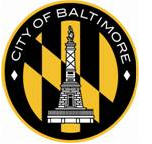Mayor Stephanie Rawlings-Blake Announces Expansion of Program Credited With Reducing Gun Violence in City Neighborhoods
Wednesday Jan 11th, 2012

FOR IMMEDIATE RELEASE

Today, Mayor Stephanie Rawlings-Blake announced the expansion of the successful Safe Streets Baltimore initiative. A Request for Proposals (RFP) was approved this morning by the Board of Estimates. The expansion of Safe Streets Baltimore is supported by the release today of a new study by researchers at the Johns Hopkins Bloomberg School of Public Health demonstrating the program’s effectiveness.
In September, the Health Department announced that Safe Streets received a $2.2 million grant from the U.S. Department of Justice’s Office of Juvenile Justice and Delinquency Prevention (OJJDP). The three-year award is part of OJJDP’s Community-Based Violence Prevention Demonstration Program, which provides funding for multi-strategy, multi-disciplinary approaches to reduce gun violence. The funding will also be used to expand the Safe Streets Baltimore initiative to two additional communities that are disproportionately impacted by violence. Interested community groups can review the RFP at http://baltimorehealth.org/rfp.html.
“Safe Streets is an important component of our citywide strategy to reduce homicides and gun violence, and a key to our plans to grow the city,” Mayor Rawlings-Blake said. “By expanding this effective initiative, we help people build social capital and empower communities.”
While the new funding supports the addition of new communities to Safe Streets Baltimore, the City needs partners to provide support in order to continue operating the program in its current locations in McElderry Park and Cherry Hill. Mayor Rawlings-Blake called on local faith, non profit, and business communities to lend their support to this vital initiative.
Safe Streets Baltimore was launched by the Baltimore City Health Department in 2007 as a replication of Chicago’s CeaseFire program. The evidence-based, public health initiative targets high-risk youth ages 14 to 25 and employs and trains outreach professionals to de-escalate and mediate disputes that might otherwise result in serious violence. Staff members serve as positive role models and direct youth toward services and opportunities to live productive, violence-free lives. In addition, staff work to mobilize neighborhoods to promote nonviolence.
At this morning’s press conference, researchers from the Johns Hopkins Bloomberg School of Public Health released a study demonstrating the effectiveness of Safe Streets Baltimore. The study is slated for publication in a future edition of the Journal of Urban Health. The authors have received permission from the journal to release the findings in advance of publication.
From July 2007 through December 2010, outreach staff mediated 276 disputes, ranging from one to four mediations per month in each of the four neighborhoods where the program was implemented. The vast majority of these disputes involved situations where the risk of gun violence was high, such as disputes between armed gang members. Outreach workers at each of the sites were working closely with 35 to 60 high-risk youth at any given time. Safe Streets Baltimore also held monthly events to promote non-violence. These events typically attracted between 100 and 200 people with the goal of promoting alternatives to resolving conflicts.
“This study demonstrates clearly that a public health intervention can be a successful means for reducing youth violence,” said Commissioner of Health Dr. Oxiris Barbot. “Thanks to the recent award from the Office of Juvenile Justice and Delinquency Prevention (OJJDP), we are excited to expand this program to other communities and extend our message that gun violence is not acceptable.”
The Johns Hopkins researchers identified specific programmatic factors related to success in reducing violence. “The results suggest that the number of conflicts mediated by the outreach workers was associated with greater program impact on homicides,” said Daniel Webster, lead author of the study and deputy director of the Johns Hopkins Center for the Prevention of Youth Violence.
Other key findings of the study include:
- In all four neighborhoods (McElderry Park, Elwood Park, Madison-Eastend, and Cherry Hill) the program was associated with a statistically significant decline in either homicides or nonfatal shootings, or both.
- Overall, researchers estimated the program prevented at least 5 homicide incidents and 35 nonfatal shooting incidents. Had there not been increases in homicides following program implementation in Madison-Eastend and a neighborhood bordering Elwood Park—which were likely unrelated to the program—the program is estimated to have prevented 15 homicides in four of the most violent neighborhoods in Baltimore.
- In the South Baltimore neighborhood Cherry Hill, the program was associated with a 56 percent decline in homicides and a 34 percent decline in nonfatal shootings.
- The program was associated with a 34 percent drop in nonfatal shootings in Elwood Park.
- Researchers estimated that Safe Streets Baltimore was responsible for a 26 percent reduction in homicides in McElderry Park over the nearly three and a half years the program was in place. This site did not experience a homicide during the first 23 months of program implementation.
The study was funded primarily through a grant from the Centers for Disease Control and Prevention to Johns Hopkins through the CDC’s designated Academic Centers of Excellence in the prevention of youth violence.
The annual cost of operating a Safe Streets Baltimore site is approximately $375,000. Safe Streets Baltimore is currently located in two communities: McElderry Park and Cherry Hill, however funding for these sites ends in June. The Health Department will use these positive evaluation results to seek additional funding for sustaining these sites.
To view the full report, for more information on the Safe Streets program, or to find out how to apply to become a Safe Streets site, please visit the Health Department’s Website, www.baltimorehealth.org/safestreets.